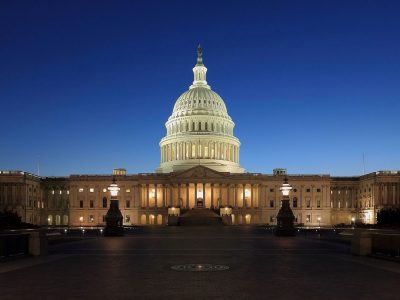Should We Do Permitting Reform?
What is at stake with the Manchin bill.
As Congress wraps up its lame duck session before the new Congress and President arrive in January, there is a lot of debate about whether to move forward on permitting reform within a quickly shrinking window of time. The basis of debate is the Energy Permitting Reform Act (EPRA) co-sponsored by Senators Manchin and Barrasso. Environmental groups are generally opposed, as are some environmental law professors; a list of climate researchers signed a letter in opposit...
CONTINUE READINGA Framework for Equity and Local Leadership in the EV Transition
New tools to help local governments plan for equitable and effective investments
Eliminating fossil fuel-powered vehicles from the road is necessary to fight climate change and save thousands of lives at risk due to poor air quality. As governments and the auto industry advance the switch to electric vehicles, this rapid technology transition may disrupt traditional mobility patterns–and, without equitable planning and policy, it has the potential for negative impacts to mobility and affordability in underserved and lower-income communities. W...
CONTINUE READINGNEPA in the Supreme Court: The Seven Counties Oral Argument
Some arguments surfaced in the discussion that the Court would do well to ignore.
The Supreme Court heard oral argument recently in the Seven Counties case. The issue in the case is the scope of an agency’s duty to consider the environmental effects of its actions. Several arguments popped up in the discussion that appealed to at least some of the Justices. We think that they would do well to rethink them. Each of the arguments distracts attention from what ought to be the key question: what impacts should the agency take into account in making...
CONTINUE READINGNEPA in the Supreme Court — On the Eve of Oral Argument
Some thoughts about how the Court should define some limits on indirect effects.
We’re posting a revised and expanded working paper on the NEPA issues before the Supreme Court in the Seven Counties case, which is being argued tomorrow. The expanded paper will soon be available on the CLEE website here. We provide a detailed examination of how federal courts of appeal have wrestled with causation issues in NEPA, building on the points we made in our earlier blog post. Many courts have relied on the foreseeability test we develop in the paper (an...
CONTINUE READINGCalifornia Can Protect Climate Policies—and Pocketbooks
Lawmakers can use climate policies to alleviate some cost burdens. They should also resist the narrative that climate progress is driving affordability concerns.
Affordability is the name of the game at the California Legislature this session, with leaders in both the Assembly and the Senate talking explicitly about cost of living. But legislators’ focus on bringing costs down for average Californians doesn’t need to come at the expense of forward-thinking climate policy. Here are a few things legislators should keep in mind this session: California’s market-based programs to reduce greenhouse gas emissions have de...
CONTINUE READINGTrump & Environmental Policy: The Sequel, Part I
Expect a lot of the same, but there could be some new twists.
They say that history never repeats itself, but it often rhymes. As in many sequels, there will be many things we’ve seen before. Much of that consisted in an all-out attack on environmental law. If you hated the original, you won’t enjoy watching the same thing the second time around. But there are a few additions to the cast and some new backdrops on the set. Today, I’m going to talk about some areas of continuity. Early Presidential actions. Trump will ...
CONTINUE READINGCan the Major Question Doctrine Block Trump’s Excesses?
The doctrine has been hailed by conservatives. But it may come back to bite them.
In West Virginia v. EPA, struck down Obama’s Clean Power Plan. The Court’s opinions opinion announced new limits on government actions in what it termed “extraordinary cases.” This has become known as the major question doctrine. It tells judges to be skeptical when the government leverage some vague or obscure law to support a dramatic, unprecedented action. Dramatic, unprecedented actions are Trump’ stock in trade. The major question doctrine could be a ...
CONTINUE READINGSix Things to Know about Rights of Nature
More than 500 Rights of Nature laws and policies have been passed globally. Here's how to make sense of this nascent movement — or movements.
This Fall, I have been co-teaching a course on Rights of Nature with the historian Jill Lepore. This is the first time either of us have taught the subject and it has proven a wonderful opportunity to explore with our students this emerging movement — one that some have praised as “A Legal Revolution That Could Save The World” and others decried as “A Wrong Turn” or worse. One thing is for sure — there is huge student interest in the topic. We had large w...
CONTINUE READINGNEPA and Loper Deference (Part II)
Guest contributor Justin Pidot outlines what losing CEQ’s NEPA authority means for interagency coordination and efficiency.
Dan provided a terrific overview of the legal issues involved in the D.C. Circuit’s recent decision holding that CEQ lacks authority to promulgate regulations and, therefore, that the regulations governing implementation of NEPA across the government for decades are ultra vires. I want to offer some additional observations focused on the potential practical implications. First, I agree with Dan’s assessment that regardless of whether the CEQ regulations bind other...
CONTINUE READINGYes, Virginia, There ARE Federal Climate Laws.
Contrary to myth, Congress has actually passed laws relating directly to climate change.
It’s a common misconception that Congress has never passed any climate change legislation. True, Congress hasn’t passed the comprehensive emission limits that many of us would like to see. But it has passed laws regulating two powerful greenhouse gases, and some other climate laws stretching back over the past five decades. The story begins under President Nixon and extends through the Biden years. These statutes will be difficult for Trump to repeal. I’ll dis...
CONTINUE READING











